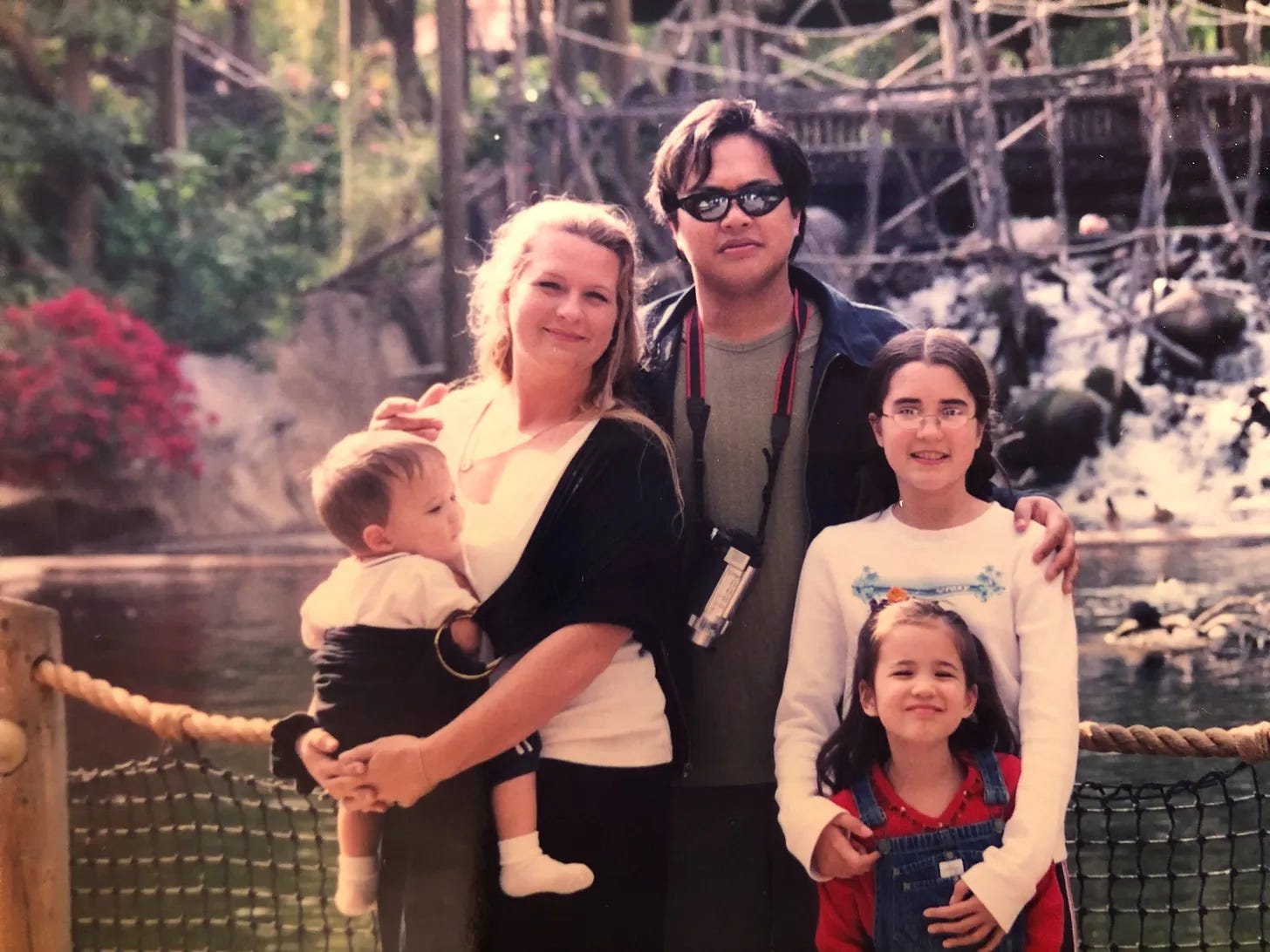To Know and Be Known: A Reflection on Estrangement, Faith, and Grace
Philippians 4:6 “Do not be anxious about anything, but in everything by prayer and supplication with thanksgiving let your requests be made known to God.”
Through Scripture, personal loss, and divine encounter, I’ve come to understand that God’s love is deeper than ours, His grief greater, and His nearness to the brokenhearted more real than we can truly fathom.
In the Old Testament, the word “knew” is sometimes used to illustrate an intimate—and even sexual—relationship between two people. For example:
Genesis 4:1
“And Adam knew Eve, his wife, and she conceived…”
Used in this context, the Hebrew root word is yada, and it carries a broad range of meanings: from general knowledge, to awareness or understanding, to a deeply intimate relationship. In the context of Genesis 4:1, it refers to an intimate, personal knowledge— often used as a euphemism for sexual relations.
In Matthew 7:23, Jesus says:
“And then will I declare to them, ‘I never knew you; depart from me, you workers of lawlessness.’”
The New Testament was written in Greek, not Hebrew, but in the context of this verse, the Greek word ginōskō is used as a verb. It means to know someone intimately, to be deeply acquainted with them—and is therefore considered the Greek counterpart to the Hebrew word yada, as both imply not merely intellectual knowledge, but relational, personal, experiential knowing.
This is especially meaningful considering that:
• In the Old Testament, yada is used for both intimacy with God (e.g., Jeremiah 1:5 — “Before I formed you… I knew you”) and for sexual union (Genesis 4:1).
• Jesus’ use of ginōskō in this context points to a relational disconnect, not merely a moral failure, and highlights a painful truth: the deepest tragedy is not ignorance of God, but estrangement from Him.
That estrangement is, quite literally, Hell.
Knowing God is rooted in relationship, not merely cognition. This understanding has become painfully personal to me as my own daughters are becoming increasingly unknown to me— our relationships strained, or nonexistent. This fracture has caused me to ponder my own understanding of what it is to “know” God. To be saved by faith. To be not of this world. To be long-suffering. To become unconditional love without compromising what is sacred and holy. To turn the other cheek. To be Christlike.
It has been the most painful realization of my life, but as many I love have died or otherwise slipped away from our lives, I’ve had to accept that many I love will never be saved. And all I can do is pray for a grace I can’t begin to comprehend.
This grieved my heart with every beat. So I took this sorrow to the Lord and begged Him to make His presence known to me in an undeniable way.
And so, I was given visions. And an understanding. And a message that was painful—but liberating.
Now I long for nothing more than to truly know God in a way that exceeds everything I’ve experienced in my 53 years. I want to hear His thoughts in all matters. Speak His words. Do His will. Live in His peace. Radiate His joy. Heal His wounded. Nourish His weary.
Nothing breaks my heart more than the thought of any of my beloved turning away from their own salvation—denying God and mocking His creation.
I don’t, can’t, understand how any of us could look at what we are doing to an entire generation of humanity and not universally find it so vile that every last breathing being in the universe is not screaming in abject horror.
The plot twist is this: rather than screaming, what the universe is actually doing is singing a song of gratitude and praise! Not because of humanity’s error, but in spite of it. A song that feels like a chorus of many, many heartbeats! And the words to the song are simply: “Thank You.”
That is the message I was given: that I must learn to say “thank you” in ALL circumstances.
To praise Him with gratitude.
To have a heart of thanksgiving. To be grateful for lessons I don’t yet understand.
And the pain of loving every single day in spite of a broken heart—that is to begin to understand how God loves us.
1 Thessalonians 5:18
“Give thanks in all circumstances; for this is the will of God in Christ Jesus for you.”
This is a direct command to practice gratitude, even in our suffering.
If we, in our human frailty and limited understanding, love our children so much that we grieve our lives away—our tears flowing daily from hearts that feel broken beyond repair—how much more must our Heavenly Father love them? Oh how much more is His heart grieving for those He loves not to remain lost to Him. And how deeply must He love us to count our very tears?
Every tear we’ve cried has been seen. Every ache has echoed in His heart. Our sorrow is not the end of the story, and our hearts will not remain broken forever.
He is near to the brokenhearted. And so to those who have ears to hear—may you hear this truth, and may it bring great comfort to your weary soul. Just give thanks, for all of it, even when you don’t understand it.


This is EXACTLY the same conclusion I have come to over the past few months. Gratitude is where I choose to live. Only God and his holy spirit can change my son's heart. So...I continue to pray for him, continue to miss him, continue to hope that somehow, God will use this for good in his life. And, I am thankful for the sweetness of relationship we once shared. Gratude changes EVERYTHING!
Psalm 56:8
You keep track of all my sorrows.
You have collected all my tears in your bottle.
You have recorded each one in your book.